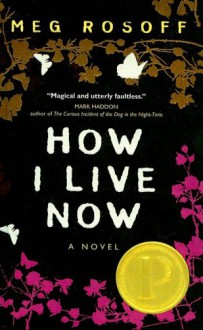Possibly one of the most talked about books of the year, Meg Rosoff’s novel for young adults is the winner of the Guardian Children’s Fiction Prize 2004. Heralded by some as the next best adult crossover novel since Mark Haddon’s The Curious Incident of the Dog in the Night-Time, who himself has...
show more
Possibly one of the most talked about books of the year, Meg Rosoff’s novel for young adults is the winner of the Guardian Children’s Fiction Prize 2004. Heralded by some as the next best adult crossover novel since Mark Haddon’s The Curious Incident of the Dog in the Night-Time, who himself has given the book a thunderously good quote, this author’s debut is undoubtedly stylish, readable and fascinating. Rosoff’s story begins in modern day London, slightly in the future, and as its heroine has a 15-year-old Manhattanite called Daisy. She’s picked up at the airport by Edmond, her English cousin, a boy in whose life she is destined to become intricately entwined. Daisy is staying for the summer in her Aunt Penn’s country farmhouse with Edmond and her other cousins. They spend some idyllic weeks together--often alone with Aunt Penn away travelling in Norway. Daisy’s cousins seem to have an almost telepathic bond, and Daisy is mesmerised by Edmond and soon falls in love with him. But their world changes forever when an unnamed aggressor invades England and begins a years-long occupation. Daisy is parted from Edmond when soldiers take over their home, and Daisy and Piper, her younger cousin, must travel to another place to work. Their experiences of occupation are never kind and always hard. Daisy’s pain, living without Edmond, is tangible. Rosoff’s writing style is both brilliant and frustrating. Her descriptions and ability to portray the emotions of her characters are wonderful. Her long sentences and total lack of speech marks for dialogue is, however, exhausting. Her narrative is deeply engaging and yet a bit unbelievable. The end of the book is dramatic, but too sudden. The book has a raw, unfinished feel about it, yet that somehow adds to the experience of reading it. It’s flawed but unmissable. (Age 14 and over) --John McLay
show less






 10 years ago
10 years ago